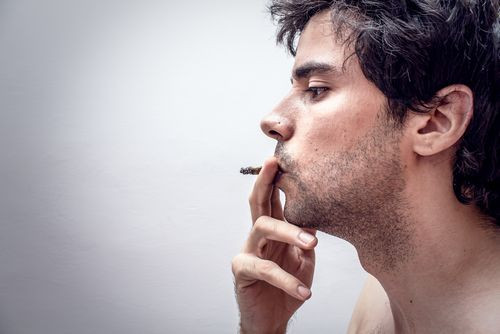Sleepless Nights: Smoking Marijuana May Affect Sleep Quality, Possibly Leading To Insomnia Later In Life

People smoke marijuana for a variety of reasons ranging from recreational to medicinal purposes. However, smoking pot at an early age can take a toll on your health, and especially when it comes to sleep. According to a recent study published in an online supplement of the journal Sleep, scheduled for presentation Wednesday in Minneapolis, Minn., at SLEEP 2014, the 28th annual meeting of the Associated Professional Sleep Societies LLC, marijuana use, specifically before age 15, is linked to sleep problems in adulthood.
"Marijuana use is common, with about half of adults having reported using it at some point in their life," said Jilesh Chheda, lead author of the study and research assistant at the University of Pennsylvania, working with Dr. Michael Grandner, senior author of the study, in the news release. "As it becomes legal in many states, it will be important to understand the impact of marijuana use on public health, as its impact on sleep in the 'real world' is not well known." The effects of cannabis on the body is of particular concern since cannabis use among young people has been increasing since 2007, according to the National Institute on Drug Abuse — just one reason public debate over its legal status has increased.
Chheda and his colleagues at the Perelman School of Medicine at Penn, obtained data from the 2007-2008 National Health and Nutrition Examination Survey (NHANES), involving adults ranging in age from 20 to 59. A total of 1,811 participants reported a history of drug use. Cannabis use was assessed as any history of use, age at first use (15 years or earlier), and number of times used in the past month. Sleep symptoms were assessed by observing whether the participants had any difficulty falling asleep, difficulty maintaining sleep, non-restorative sleep, and daytime sleepiness. These sleep-related problems were considered severe if they occurred at least 15 days per month.
The findings revealed users reported a higher incidence of restlessness, sleeplessness, and drowsiness than non-users. The most affected group were those who reported smoking marijuana at a young age. These participants were twice more likely to suffer from sleep deprivation even if they reduced the amount of pot they smoked later in life.
Those who started smoking pot before the age of 15 were about twice as likely to have severe problems falling asleep, experiencing non-restorative sleep, and feeling overly sleepy during the day. This held true even after the researchers adjusted for potential confounders including age, sex, race/ethnicity, and education.
“Current and past marijuana users are more likely to experience sleep problems," said Chheda, according to Medical News Today. The researchers were surprised to find that there was a strong relationship with age of first use, despite how often people were currently using marijuana. Those who started to smoke marijuana early in the study were more likely to have sleep problems as an adult.
However, Chheda and his team of researchers did not determine the exact relationship between marijuana-use and sleep disturbance, only a link. The results do suggest that initiation of marijuana use during adolescence could lead to a higher risk for subsequent insomnia symptoms, or it may mean those who began to use it earlier are more likely to experience insomnia for other reasons, such as stress. Insomnia may even be one of the reasons people start or continue to use marijuana. This study provides evidence it is probably not effective if they are still experiencing problems.
Currently, there is limited evidence regarding marijuana and its effects on sleep, as research on medicinal use of the substance is restricted due to its legal status. Most of the research available on cannabis and sleep was conducted in the 1970s. Researchers Timothy Roehrs and Thomas Roth found low doses of THC (tetrahydrocannabinol) — 4 to 20 milligrams — mildly decreased REM sleep in both regular users and nonusers. Interestingly, deep sleep was increased when marijuana was first used, but this effect disappeared after continual use. Overall, high doses of THC — 50 to 210 milligrams — REM sleep was decreased in both regular users and nonusers.
The federal government considers marijuana to be a schedule I substance that has no medicinal uses and has a high risk for abuse, says the DEA. Currently, Colorado and Washington have legalized marijuana for adult recreational use, and 21 states have passed laws that allow the substance to be used for medicinal purposes. With the legalization movement rising, more research has to be done to examine the effects of marijuana on our health.
Source: Chheda et al. Marijuana use associated with impaired sleep quality. Sleep. 2014.
Published by Medicaldaily.com



























